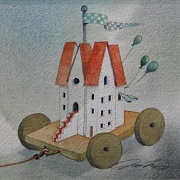|
Sniep posted:and you hit PTT on 40 and the thing falls from the sky immediately We have a new thread title candidate.
|
|
|
|

|
| # ? Apr 20, 2024 16:09 |
|
Motronic posted:Anyone frosty enough to do this? I dusted off the MD380 as well and have my hot spot running again. Yeah I would some night - can we figure on a BM TG that works or use a TAC ?
|
|
|
|
Study guides for the licensing test seem universally terrible. They all just look like they take the question bank, turn them into a declarative statement, and then ask the question for "practice". Is it normal for people to just get the license by grinding the question bank and worry about understanding things later?
|
|
|
|
captkirk posted:Study guides for the licensing test seem universally terrible. They all just look like they take the question bank, turn them into a declarative statement, and then ask the question for "practice". Is it normal for people to just get the license by grinding the question bank and worry about understanding things later? No, but people who pass tests based on study guides do it this way. If you want to understand the theory the ARRL books and similar are probably the right way to go. Then do the question pool study guides to make sure you have it down. Note: this does not apply to tech, because lol, it's mostly just regulations, safety and a few band plan (again basically regulation) questions unless that test pool has significantly changed.
|
|
|
|
More playing around with the AM squelch/noise gating feature over the last days. I made it so it'll cut the audio bandwidth down to around 1 kHz when the carrier has faded. Then I added a second check so if there's basically no detectable carrier, the audio level is also attenuated up to 10 dB. That way once the receiver is tuned away from an AM station, or the station goes off air, it cuts the audio down to a comfortable level for tuning. This receiver is probably not very user friendly right now, there's basically no audio until you're right on frequency, but you can hear the carrier whine when a station is close and zero beat based on that (and if I can't hear the carrier whine clearly, the station is too weak to listen to anyway). Since the receiver has a digital display and synthesized tuning that's fine for my use. I also plan to add an analog fine tuning knob to make it easier to tune stations if they're between the 100 Hz steps of the synth in the radio. Also optimized the CPLD design a bit, so now I can use the MCU SPI transmitters automatic slave select feature to access the DDS chip. Changing the LO frequency (5x16 bit write) now takes around 20µs instead of 300+ like it did using 8 bit transfers and GPIO for slave select. To be fair the software slave select could go a lot faster if I needed it to, but now I don't have to optimize that part. Since it's so fast now I can do the entire AM sync PLL (phase-detector ADC sampling + loop filter + update output frequency) in the interrupt handler. The PLL servo (software PID regulator) runs at around 500 Hz interrupt rate with the ADC set to 64x oversampling to avoid aliasing issues and reduce sampling noise. Kind of glad I went with the STM32F303 instead of the F103 for this function, this Cortex M4 is very fast doing double precision floating point (relatively speaking).
|
|
|
|
Apologies for the 101 question, but I'm trying to find, very simply, the difference between an FM transmitter circuit and an AM transmitter circuit, but everything looks the same and there's less examples than you'd think. Literally just looking for oscillator, mic, mixer, antenna kinda thing. Is it the way the transistors are linked that determines the kind of modulation performed? My breadboard circuits don't work also - I am very sad. I know they are poo poo for RF for but basic hobby 30meter range stuff it should be ok. I have no real analysing tools other than a multimeter  Reluctant to move to protoboard until I have something tested and working.
|
|
|
|
Do you have any examples of what circuits you're looking at? For the extremely simple cases like 2-3 transistor transmitters the modulation might affect both frequency and amplitude, the AM receiver will usually ignore frequency changes and FM receivers will ignore amplitude changes.
|
|
|
|
longview posted:Do you have any examples of what circuits you're looking at? Ooh. That’s interesting. I assumed it was the layout of the circuit that did it. Stuff like this: https://www.buildcircuit.com/simple-steps-for-making-fm-transmitter/
|
|
|
|
I'm not entirely sure what you're looking for here, but I'll try to answer: Yeah that's the sort of circuit that's not necessarily trivial to analyze since it relies of a lot of analog transistor properties to work. It wouldn't surprise me at all if that circuit didn't work if you designed a "proper" PCB for it since it probably relies on all the parasitics of the way it's built. That circuit seems to rely on the change in transistor base current (or maybe the gain-collector current function) to change the resonant frequency of the oscillator, it's a neat design but not very pedagogical... It will probably exhibit some amplitude change when you apply modulation but it's not going to be a good AM transmitter. If you need to check what a circuit you built is doing you can use an RTL-SDR dongle as a cheap spectrum analyzer to e.g. check what frequency it's oscillating at. For the theory: This site has pretty useful info on modulation forms and what they and the circuitry looks like: https://www.electronics-notes.com/articles/radio/modulation/amplitude-modulation-am.php And for transmitter (low on pictures though): https://www.electronics-notes.com/articles/radio/modulation/amplitude-modulation-am-modulator-circuits.php A simple AM transmitter is IMO harder to build than a FM transmitter, since you need amplifiers with low distortion, and usually a mixer is needed to go from a fixed carrier signal (from an oscillator) to a modulated carrier signal. For FM you just need a voltage controlled oscillator. The ARRL handbook has a lot of detail about what the actual circuits can look like, and what block diagram components an AM or FM transmitter has. I'd recommend getting a copy of that or something equivalent.
|
|
|
|
I think I’ll have to. I do have an SDR so can check the bands fairly easily. I’ve got some QRP designs to study too, still hoping to make an upgraded Pixie PCB but would love to get the basics down first. I thought I knew them but apparently not.
|
|
|
|
My insane oversimplification of how FM and AM transmitters work: Imagine you have a transmitter that is just transmitting a single continuous wave on one frequency. Now let's add a speaker cone (because everybody understands how those move) and a linkage to knobs on the transmitter.  This is what an FM transmitter looks like. The output power stays constant, but we wiggle its frequency back and forth in sync with the modulation audio's speaker cone.  And here's an AM transmitter. We leave the frequency constant, but wiggle the output power back and forth in sync with the modulation speaker. Obviously this doesn't work in real life as you can't shake a tuning knob back and forth 3,000 times a second, but this is basically what's happening. How far you wiggle the knob on the FM transmitter is the 'deviation'. How far you wiggle the power knob on the AM is the 'modulation'.
|
|
|
|
Lol I like it that's a pretty great simplification of the concept, but you could just post a AM modulated carrier next to a FM modulated carrier and probably get the concept across just fine.
|
|
|
|
So I went deep and got the FT-991A. I am now swinging between regretting going in so hard and being hyper excited for it to ship.
|
|
|
|
Lou Takki posted:Lol I like it that's a pretty great simplification of the concept, but you could just post a AM modulated carrier next to a FM modulated carrier and probably get the concept across just fine. Wikipedia has the graphic you described. 
|
|
|
|
motoh posted:So I went deep and got the FT-991A. I am now swinging between regretting going in so hard and being hyper excited for it to ship. Buyer's remorse is real but it will disappear the first time you fire it up. I hit myself hard with it buying a 7300 and a 9700 in the same month last year, my account felt the pain but by the time they were unboxed and on the air I'd totally gotten over it. Nice choice for a swiss army knife rig!
|
|
|
|
I totally understand what those signals are, just not how to get them out of the mixer transistor, one or the other.
|
|
|
|
In the case you linked, the transistor is doing a very small job - it's a dial, like Jonny's diagram, switching between high and low throughput due to input from the microphone (audio oscillation becoming electrical oscillation) https://www.electronics-tutorials.ws/oscillator/hartley.html The important element is the RLC circuit, providing the center frequency of your radio. The transistor is put 'inline' with this circuit, and as the voice drives the transistor more on or more off, the resonant frequency of the RLC circuit is changing, thus your radio wave is changing frequency with the voice. In an AM circuit, you'd put the voice and transistor on the output of the RLC, instead of inside it, and the transistor would drain more power out of the RF wave, or allow more of it to pass on the antenna, based on the voice signal. motoh fucked around with this message at 23:47 on May 14, 2020 |
|
|
|
Yep. You'll hear about 'varactors' a lot when dealing with FM transmitters. Turns out we have these special diodes that change capacitance with how much reverse bias you put across them. If you use them in a tuned oscillator circuit, and feed your audio signal into the varactor, it will wiggle the carrier freq in sync with the incoming audio input. That's the 'linkage' in my first diagram!
|
|
|
|
Not sure if this is the right thread but I just got my first rtl-sdr thing. It works, and I was able to tune into some radio stations which was kind of neat. I first wanted to read my power meter and https://github.com/bemasher/rtlamr all running, maybe, but it's not seeing any packets at all :/ Has anyone tried that before and know of any common problem spots?
|
|
|
|
Just passed my (UK) Foundation exam. I'll be burning up the bands with my 10watts soon.
|
|
|
|
NOW we’re getting there. Thanks guys, that gives me a good start on understanding this. Edit: welcome to the foundation club! ^
|
|
|
|
Jonny 290 posted:Yep. You'll hear about 'varactors' a lot when dealing with FM transmitters. Turns out we have these special diodes that change capacitance with how much reverse bias you put across them. If you use them in a tuned oscillator circuit, and feed your audio signal into the varactor, it will wiggle the carrier freq in sync with the incoming audio input. That's the 'linkage' in my first diagram! My babby's first FM transmitter was a 3-FET ring oscillator running at 33 MHz, I modulated it by AC coupling a small headphone amp onto the supply voltage. No varactors (or inductors, or capacitors) needed! It was surprisingly stable and powerful. Also note that all diodes (and bipolar transistors IIRC) are varactors, it's just that normal diodes are a lot less varactory. The BAT54 schottky diode is actually pretty linear, changing from ~12 to ~6 pF from 0-2V before flattening out.
|
|
|
|
Pardot posted:Not sure if this is the right thread but I just got my first rtl-sdr thing. It works, and I was able to tune into some radio stations which was kind of neat. I first wanted to read my power meter and https://github.com/bemasher/rtlamr all running, maybe, but it's not seeing any packets at all :/ Has anyone tried that before and know of any common problem spots?
|
|
|
|
I took my General online yesterday and passed. The VEs at the Greater LA amateur radio group were really nice, even dealing with 30 people and their special circumstances. As a bonus, my license was updated on the ULS in less than 24 hours. Now to start playing around on HF
|
|
|
|
The Hambulance posted:I took my General online yesterday and passed. The VEs at the Greater LA amateur radio group were really nice, even dealing with 30 people and their special circumstances. Goongratulations. If this remote testing becomes more common I might not feel bad about doing my extra that way (I don't want to get in the way of people getting into the hobby or people getting their HF privs).
|
|
|
|
Motronic posted:Goongratulations. If this remote testing becomes more common I might not feel bad about doing my extra that way (I don't want to get in the way of people getting into the hobby or people getting their HF privs). I can only speak to the 10 people I saw In my “room” but only one was there for their technician license. Everyone else was there for General or Extra. Just get in the queue and take the test. Online testing is becoming more commonplace since the FCC said it was ok. https://docs.fcc.gov/public/attachments/DA-20-467A1.pdf There’s already groups in Massachusetts and one in Florida (I think) offering remote exams. The Hambulance fucked around with this message at 18:44 on May 21, 2020 |
|
|
|
Anyone doing anything special for field day? Local clubs are telling people to participate from home, but a lot of the old-timers are still hoping the lockdown will be lifted by the 27th. I suppose it's possible, but I'm not getting my hopes up.
|
|
|
|
One of our club members owns an actual field and they plan to still host people from there. If my poo poo isn’t packed maybe I can try operating outside this year though I don’t have the best setup. Anytime I’ve tried cutting radials for hustler resonators as a vertical it has resulted in terrible performance
|
|
|
|
I bought a uBITX and an end-fed wire antenna, hoping to be able to get some sort of minor HF setup going. The single AM station in my city, however, overwhelms my front end so I have AM oldies screaming over everything on all bands. Super annoying. I also don't have the space to set up my electronics bench or the parts to build a high pass filter. Ham troubles.
|
|
|
|
Just saw this on Reddit: https://www.youtube.com/watch?v=glmwTb9NP5w
|
|
|
|
got a baofeng uv-82hp and im studying for my technician exam. having touched this stuff in the late 90s from nerd friend's dads' its insane to see how ""easy"" it was to program this radio. im still reading and learning a ton of poo poo but i've been able to get most of the emergency frequencies in my area not to mention some repeaters
|
|
|
|
Casual Encountess posted:got a baofeng uv-82hp and im studying for my technician exam. If you’re programming by hand, consider a USB cable and Chirp. A lot of cheap cables use counterfeit FTDI chipsets, so you may have to load an old driver. Drivers are available on the “miklor” site known for reviewing Chinese radios. Be careful loading public safety frequencies onto a radio that has the ability to transmit. It’s too easy to flip between the A and B “vid” and transmit on accident. There are programming tricks to avoid that.
|
|
|
|
https://www.twitter.com/motherboard/status/1269778670920531972
|
|
|
|
eddiewalker posted:If you’re programming by hand, consider a USB cable and Chirp. A lot of cheap cables use counterfeit FTDI chipsets, so you may have to load an old driver. Drivers are available on the “miklor” site known for reviewing Chinese radios. yeah i got a cable and it was much easier to program i’m having a blast trying to figure out how to hit repeaters.
|
|
|
|
So I heard that ham radio license tests don't require you to learn Morse code anymore. My roommate in college got his ham license and studying for that took him 75% of the time he spent. It seemed like a real waste of time. If this is true and I'm considering dropping the $15 for it. Looking at the sample questions I pretty much know everything already that they're going to test on just from high school and college science classes. The only things I would really need to study up on are the rules for actually broadcasting and receiving. I see some online study aids and courses. Any recommended ones?
|
|
|
|
|
Nitrousoxide posted:So I heard that ham radio license tests don't require you to learn Morse code anymore. My roommate in college got his ham license and studying for that took him 75% of the time he spent. It seemed like a real waste of time. If this is true and I'm considering dropping the $15 for it. Looking at the sample questions I pretty much know everything already that they're going to test on just from high school and college science classes. The only things I would really need to study up on are the rules for actually broadcasting and receiving. I see some online study aids and courses. Any recommended ones? Yes, you no longer need to show CW proficiency to pass amateur exams.
|
|
|
|
Nitrousoxide posted:So I heard that ham radio license tests don't require you to learn Morse code anymore. My roommate in college got his ham license and studying for that took him 75% of the time he spent. It seemed like a real waste of time. If this is true and I'm considering dropping the $15 for it. Looking at the sample questions I pretty much know everything already that they're going to test on just from high school and college science classes. The only things I would really need to study up on are the rules for actually broadcasting and receiving. I see some online study aids and courses. Any recommended ones? Cool. You know what everything. Hobby over. Congrats I guess. If you’re in the US, the tech code requirement was dropped nearly two decades ago. High school science and Ohm’s Law will get you a couple of questions right, but there’s still a large portion of the question pool on specialized information you haven’t picked up outside of radio. If you actually want to learn it, I like the Gordon West books. https://www.amazon.com/dp/0945053908/ref=cm_sw_r_cp_api_i_ddJ3EbFCW6BCF If you just want to drill questions, try some AA9PW practice exams.
|
|
|
|
Nitrousoxide posted:So I heard that ham radio license tests don't require you to learn Morse code anymore. My roommate in college got his ham license and studying for that took him 75% of the time he spent. It seemed like a real waste of time. If this is true and I'm considering dropping the $15 for it. Looking at the sample questions I pretty much know everything already that they're going to test on just from high school and college science classes. The only things I would really need to study up on are the rules for actually broadcasting and receiving. I see some online study aids and courses. Any recommended ones? Thank god they got rid of the code requirements. That's the only reason I got my license. I've had great luck studying from the ARRL books and using the practice exams on HamStudy.org and Hamexam.org I prefer HamStudy simply because it makes sure you have seen all the questions in the pool, then it hammers you with the ones you got wrong. It's great for learning the questions & answers, but I needed the books for it to make sense. I have the ARRL books for the tech and general exams. PM me if you want one (or both) and I'll send them out to you.
|
|
|
|
Nitrousoxide posted:So I heard that ham radio license tests don't require you to learn Morse code anymore. My roommate in college got his ham license and studying for that took him 75% of the time he spent. It seemed like a real waste of time. If this is true and I'm considering dropping the $15 for it. Looking at the sample questions I pretty much know everything already that they're going to test on just from high school and college science classes. The only things I would really need to study up on are the rules for actually broadcasting and receiving. I see some online study aids and courses. Any recommended ones? Tech is pretty easy to pass with a little study from a guide. Higher license levels will take somewhat more work for most people.
|
|
|
|

|
| # ? Apr 20, 2024 16:09 |
|
Thanks for the suggestions. I bumped into the ham radios again after seeing some folks on YouTube talking about DMR, which seemed like a really cool way to use the ham bands, and get good international comms and handle more simultaneous users. The way you can manage regions as you move around or use a tiny repeater or base station in your house so you can turn a handheld down to 1w or something to direct it to the internet while still being able to talk to people Italy or wherever is just really cool.
|
|
|
|


































